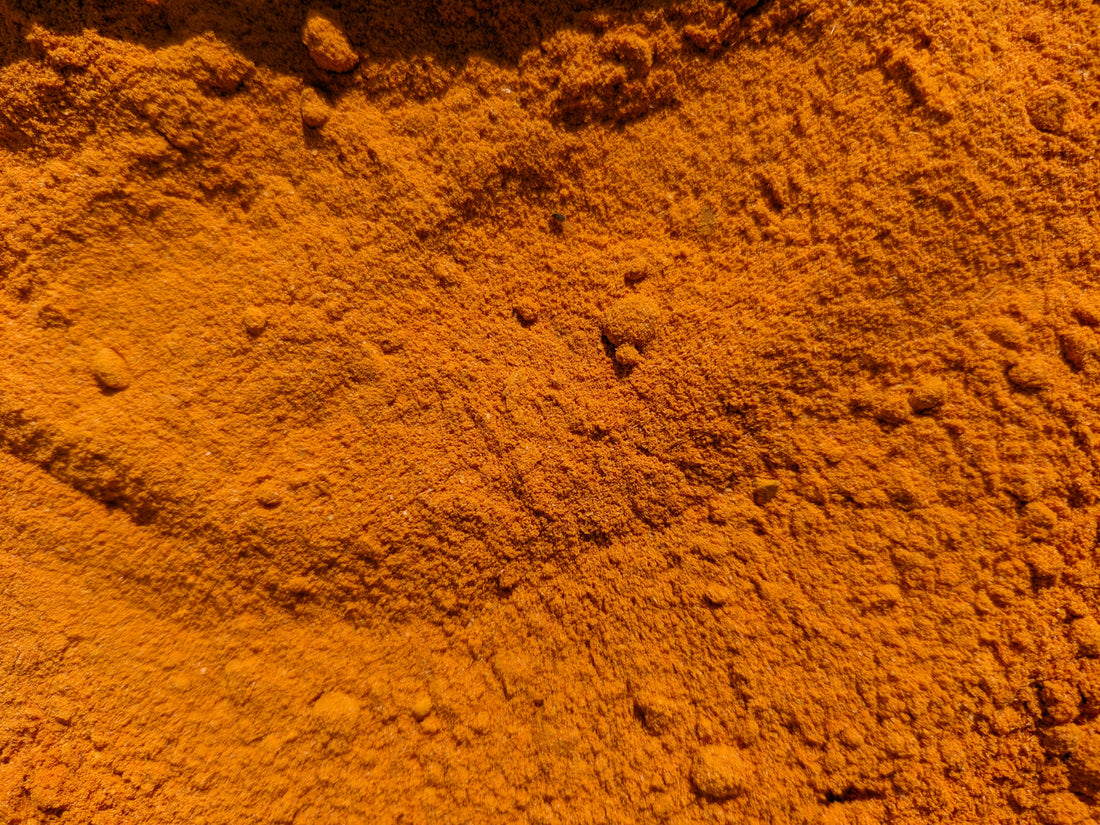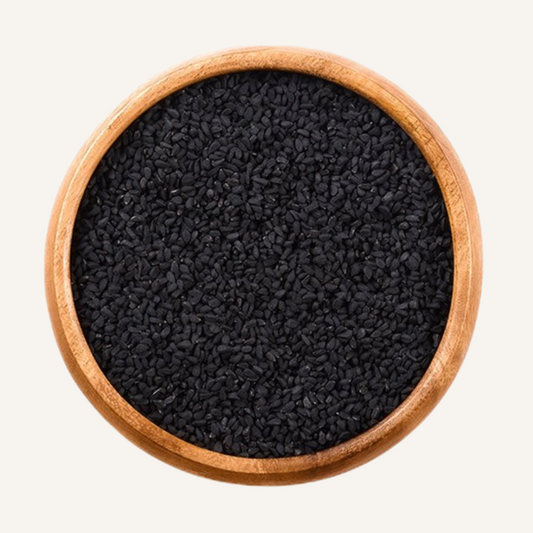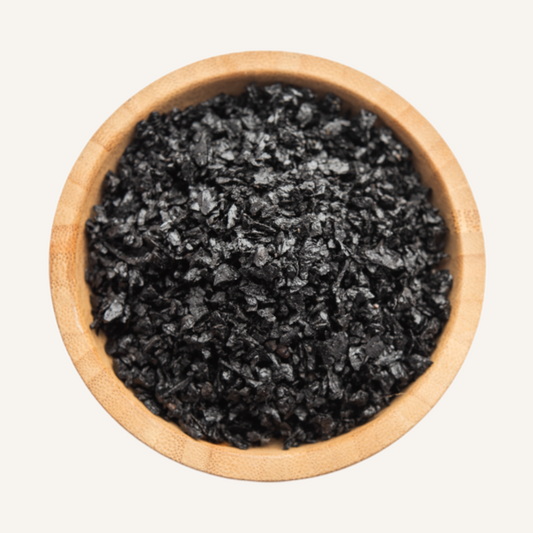
The Healing Power of Turmeric: 5 Science-Backed Benefits for your Health
Ilyas KhanShare
Introduction
Turmeric, also known as the "golden spice," has been used for thousands of years in traditional medicine for its healing properties. It's a popular ingredient in Indian and Asian cuisine and has gained popularity in recent years as a natural remedy for various health conditions. Turmeric contains a powerful antioxidant called curcumin, which is responsible for many of its health benefits. In this article, we'll explore the many benefits of turmeric and how to incorporate it into your diet.
Benefit 1 - Anti-inflammatory Benefits of Turmeric
One of the most well-known benefits of turmeric is its anti-inflammatory properties. Inflammation is the body's natural response to injury or infection, but chronic inflammation can lead to various health conditions, including arthritis, heart disease, and cancer. Turmeric's anti-inflammatory properties come from curcumin, which has been shown to inhibit inflammatory pathways in the body.
Studies have found that curcumin can reduce inflammation in various parts of the body, including the joints, gut, and brain. In a study published in the Journal of Alternative and Complementary Medicine, researchers found that turmeric extract improved irritable bowel syndrome (IBS) symptomology in otherwise healthy adults. Another study published in Nutrients found that curcumin has potential anti-inflammatory and antioxidant properties in the treatment of lung cancer.
Benefit 2 - Improves Digestive Health
In addition to its anti-inflammatory properties, turmeric is also beneficial for digestive health. It can improve digestion, reduce bloating and gas, and promote gut health. Turmeric stimulates the production of bile in the liver, which aids in digestion and the breakdown of fats.
Turmeric also has antimicrobial properties that can help kill harmful bacteria in the gut. This can help prevent digestive issues like diarrhea, bloating, and constipation. Additionally, turmeric can help soothe the lining of the gut and reduce inflammation, which can improve overall gut health.
Benefit 3 - Improves Brain Health
Curcumin has been shown to have neuroprotective properties, which can improve brain health and cognitive function. In a study published in the American Journal of Epidemiology, researchers found that regular consumption of curry, which contains turmeric, was associated with better cognitive function in the elderly.
Curcumin has also been shown to increase the production of brain-derived neurotrophic factor (BDNF), which is a protein that promotes the growth and survival of neurons in the brain. Low levels of BDNF have been linked to various neurological disorders, including depression and Alzheimer's disease.
Benefit 4 - May improve skin health
Curcumin's anti-inflammatory and antioxidant properties may help improve the overall health and appearance of the skin. Inflammation is known to play a role in several skin conditions, including psoriasis and acne, and curcumin's ability to reduce inflammation may help alleviate symptoms. Additionally, curcumin has been shown to protect against oxidative damage, which can contribute to premature aging of the skin.
One study found that applying a cream containing curcumin improved skin elasticity and hydration in participants. Another review of studies found that curcumin may help with several skin conditions, including atopic dermatitis, acne vulgaris, and aging-related changes in skin.
Benefit 5 - May have anti-cancer properties
Some research suggests that curcumin may have anti-cancer properties, although more studies are needed to fully understand its potential as a cancer treatment. According to a review published in the journal Current Opinion in Clinical Nutrition and Metabolic Care, curcumin has been shown to have anti-cancer effects in laboratory studies and animal models.
Additionally, a small study published in the journal Cancer Prevention Research found that curcumin may help prevent the development of colon cancer in people with a history of polyps in the colon.
How to Incorporate Turmeric into Your Diet
Incorporating turmeric into your diet is an easy and delicious way to reap the benefits of this super spice. Here are some ideas for how to use turmeric in your meals:
- Mix turmeric into scrambled eggs or omelets for a healthy breakfast.
- Add turmeric to smoothies or juices for a nutritional boost.
- Use turmeric to season roasted vegetables like sweet potatoes or cauliflower.
- Make a turmeric tea by boiling turmeric powder with water, then adding honey and lemon for a sweet and tangy flavor.
It's important to note that turmeric is best absorbed by the body when consumed with black pepper and some type of fat. Black pepper contains piperine, a compound that enhances the absorption of curcumin, while fat helps to solubilize the turmeric and make it more bioavailable.
Conclusion
Turmeric is a powerful natural remedy that can offer numerous benefits for overall health and wellness. Its anti-inflammatory, digestive, and brain health benefits make it an excellent natural remedy for various health conditions. Incorporating turmeric into your diet is an easy and tasty way to reap the benefits of this super spice. Try adding turmeric to your next meal or drink and experience the healing power of this golden spice for yourself
References:
-
Jurenka, J. S. (2009). Anti-inflammatory properties of curcumin, a major constituent of Curcuma longa: a review of preclinical and clinical research. Alternative medicine review, 14(2), 141-153. https://pubmed.ncbi.nlm.nih.gov/19594223/
-
Sánchez‐Sánchez, L., Gómez‐Villalva, E., Carrasco‐Catalán, V., Castillo‐Sánchez, J., García‐Vigara, A., & Martínez‐Salcedo, Y. (2020). Curcumin: A natural compound with potential anti-inflammatory and antioxidant properties in the treatment of lung cancer. Nutrients, 12(12), 3739. https://www.ncbi.nlm.nih.gov/pmc/articles/PMC7760002/
-
Bundy, R., Walker, A. F., Middleton, R. W., & Booth, J. (2004). Turmeric extract may improve irritable bowel syndrome symptomology in otherwise healthy adults: a pilot study. Journal of alternative and complementary medicine, 10(6), 1015-1018. https://pubmed.ncbi.nlm.nih.gov/15673996/
-
Ng, T. P., Chiam, P. C., Lee, T., Chua, H. C., Lim, L., & Kua, E. H. (2006). Curry consumption and cognitive function in the elderly. American Journal of Epidemiology, 164(9), 898-906. https://academic.oup.com/aje/article/164/9/898/70595









1 comment
It’s so good